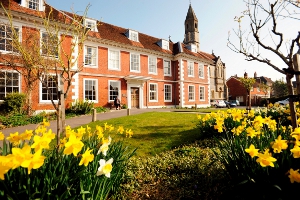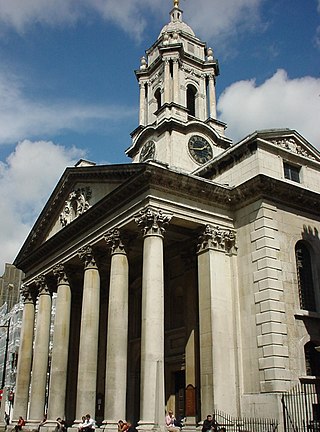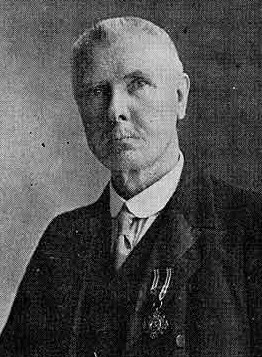Related Research Articles

The Royal School of Church Music (RSCM) is a Christian music education organisation dedicated to the promotion of music in Christian worship, in particular the repertoire and traditions of Anglican church music, largely through publications, training courses and an award scheme. The organisation was founded in England in 1927 by Sir Sydney Nicholson and today it operates internationally, with 8,500 members in over 40 countries worldwide, and is the largest church music organisation in Britain.

Thomas Roseingrave, like his father Daniel Roseingrave, was an English-born Irish composer and organist.
Daniel Roseingrave was an English-born organist and composer mainly active in Dublin, Ireland.

Chevalier William Henry Grattan Flood was a noted Irish author, composer, musicologist and historian. As a writer and ecclesiastical composer, his personal contributions to Irish music produced enduring works, although he is regarded today as controversial due to the inaccuracy of some of his work. As a historian, his output was prolific on topics of local and national historical or biographical interest.
Ann Buckley is an Irish musicologist, born in Dublin.
Arthur Warren Darley was an Irish violinist, folksong collector, music teacher and adjudicator as well as a traditional music archivist. As a violinist he was equally at home in classical music as in the traditional music of Ireland.
Charles Herbert Kitson was an English organist, teacher, and music educator, author of several books on harmony and counterpoint.
Fintan O'Carroll was an Irish composer. He was born in Wexford, Ireland in 1922. His family later moved to Waterford and this is where he spent the rest of his life. He died in 1981 and is survived by his wife and six of his seven children.
Daniel ("Dal") McNulty was an Irish composer distinguished for his contributions to inspirational church music.
Richard Woodward the younger was an Irish composer and organist, probably of English birth.
Joseph Robinson was an Irish composer, baritone, conductor, and teacher.
Philip Cogan was an Irish composer, pianist, and conductor.

Sir Robert Prescott Stewart was an Irish composer, organist, conductor, and teacher – one of the most influential (classical) musicians in 19th-century Ireland.

Vincent O'Brien, Irish organist, music teacher and composer. O'Brien was an important figure in early 20th-century Irish music. For some, he is mainly known as the first teacher of singers such as John McCormack, Margaret Burke-Sheridan and the writer James Joyce.
William Alexander Houston Collisson was an Anglo-Irish priest, writer, organist, pianist, impresario, and composer, mainly remembered for his long collaboration with Percy French.

Francis Llewellyn Harrison, better known as "Frank Harrison" or "Frank Ll. Harrison" was one of the leading musicologists of his time and a pioneering ethnomusicologist. Initially trained as an organist and composer, he turned to musicology in the early 1950s, first specialising in English and Irish music of the Middle Ages and increasingly turning to ethnomusicological subjects in the course of his career. His Music in Medieval Britain (1958) is still a standard work on the subject, and Time, Place and Music (1973) is a key textbook on ethnomusicology.

Harry White is an Irish musicologist and university professor. With specialisations in Irish musical and cultural history, the music of the Austrian baroque composer Johann Joseph Fux, and the development of Anglo-American musicology since 1945, he is one of the most widely published and influential academics in his areas of research. White is also a poet, with two published collections of poetry.
The Society for Musicology in Ireland (SMI) is an Irish learned society in the field of musicology. Founded in 2003, it reflects the growing research activity and the increasing academic tuition available at Irish universities in the fields of music and musicology that has been visible since the early 1990s. Since 2011, the SMI benefits from charitable tax exemption by the Revenue Commissioners.
Michael Anthony Harty was an Irish Roman Catholic prelate who served as Bishop of Killaloe between 1967 and 1994.
References
- ↑ Kerry Houston: "Gillen, Gerard Thomas", in: The Encyclopaedia of Music in Ireland, ed. Harry White & Barra Boydell (Dublin: UCD Press, 2013), pp. 429–431.
- ↑ Houston (2013), p. 430–1.
- ↑ Houston (2013), p. 431.
- ↑ Houston (2013), p. 431.
- ↑ Volumes 1–3 (Blackrock, County Dublin: Irish Academic Press); volumes 4ff. (Dublin: Four Courts Press).
- ↑ "Official hymn launched for WMOF2018 – A Joy For All The Earth". Irish Catholic Bishops' Conference . Archived from the original on 27 February 2018..